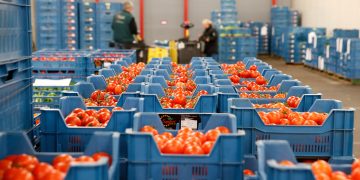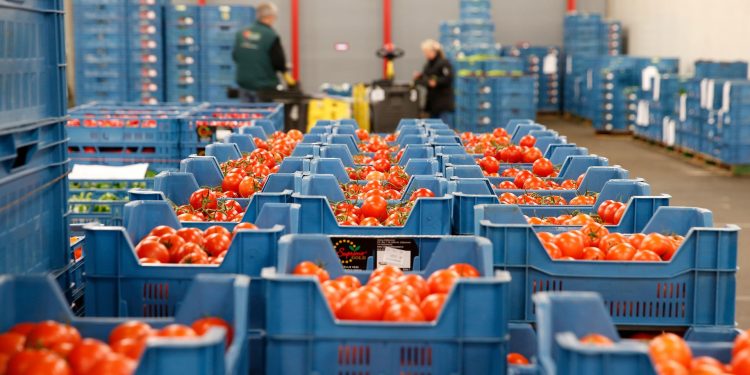Exporters Call for Reduced Cargo Fares and Increased Space Allocation to Revitalize the Agriculture Sector
Bangladesh’s agricultural export sector, especially in fruits, vegetables, and betel leaves, is facing significant challenges due to high cargo fares and limited space allocation. The Bangladesh Fruits, Vegetables & Allied Products Exporters Association (BFVAPEA) has raised concerns with government authorities, urging them to take immediate steps to address these issues.
Exporters have reported a sharp decline in export volumes this year, with shipments nearly halving compared to previous years. The situation is becoming critical, as Bangladesh risks losing its foothold in key foreign markets to neighboring countries such as India, Pakistan, Nepal, and Sri Lanka. In response, BFVAPEA has called on the government to rationalize cargo fares and align them with regional competitors to remain competitive in the global market.
The demand for Bangladeshi fresh produce, including vegetables, fruits, and betel leaves, remains high in international markets, with an estimated requirement of 300-400 tonnes. However, due to inadequate cargo space and high transportation costs, exporters are struggling to meet this demand. This has led to a significant decline in the sector’s performance. For instance, the export volume of fruits and vegetables has plummeted by over 68.5 percent in the past decade, dropping from $239 million in FY14 to $74.90 million in FY23.
In the last six months alone, cargo fares for agricultural exports have tripled. Transport costs have surged from $1.00 to $2.70 per kilogram for exporting these items. Exporters now face charges of $5.20 per kilogram for shipments from Dhaka to London, $3.65 per kilogram to Toronto, and between $0.86 and $1.75 per kilogram to various Middle Eastern countries, including Kuwait, Oman, Saudi Arabia, and Dubai.
Industry insiders also point out that the ready-made garments (RMG) sector receives preferential treatment at export cargo villages, often overshadowing agricultural exports. This prioritization exacerbates the problem, as vegetables and fruits are perishable and require timely transportation. Furthermore, the cargo charges for garments with Biman Bangladesh Airlines are reportedly lower than for agricultural products, despite the perishable nature of fresh produce.
Mohammed Monsur, General Secretary of BFVAPEA, emphasized the urgency of the situation, calling on the government to act swiftly to make cargo fares more reasonable and support the country’s potential agricultural sector. He pointed out that cargo fares have increased threefold between February and August of this year, despite no corresponding rise in operational costs or global fuel prices for Biman Bangladesh Airlines.
The agricultural sector is crucial to Bangladesh’s economy, and without immediate reforms, the country’s position in the global fresh produce market could be further jeopardized. Exporters hope that by reducing cargo fares and increasing space allocation for agricultural goods, the government can help reverse the decline in export volumes and support the sector’s recovery.































